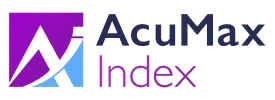A company’s purpose defines the “why” — why an organization exists and why that existence matters. Defining purpose is different from a vision, values, or mission statement. These elements are interconnected and answer the five W’s: who, what, when, where and why. You need each of those pieces defined to articulate the company’s past, present, and future. Vision describes where you want your organization to go in the future and when you want to get there. Values are your organization’s cultural or behavioral foundation, how you will get to where you want to go. Mission describes what you do and who you are doing it for. Purpose answers why the company does what it does and why your organization is uniquely suited.
Purpose helps orient your employees to why their work matters, making them more engaged and productive. PwC’s Strategy& surveyed 540 participants from across industries, regions, and levels to better understand how people feel at work and how to engage and motivate them to bring their best to work every day to further the company’s agenda. Just 28% of respondents reported feeling fully connected to their company’s purpose. Only 39% said they could clearly see the value they create. A minor 22% agreed that their jobs allow them to leverage their strengths fully, and only 34% thought they strongly contribute to their company’s success. More than half weren’t even “somewhat” motivated, passionate, or excited about their jobs. These results point to employee’s not understanding their purpose, feeling lost in why their work and company matter.
Moreover, in a recent McKinsey survey comprising a representative sample of more than 1,000 participants from US companies, 82 percent affirmed the importance of purpose. Still, only 42 percent reported that their company’s stated “purpose” had much effect. The issue there is likely one of not having a meaningful and actual purpose statement. Generic purpose statements that don’t connect into the larger global and national picture and address how employees fit in will not be meaningful and impactful to an organization. The McKinsey survey found that contributing to society and creating meaningful work were the top two priorities of employees but are the focus of just 21 percent and 11 percent of purpose statements, respectively.
Building organizational development programs can be challenging, but there are many resources to support you on your journey. In partnership with AcuMax Index, our HR Consultants can work with you in building an organizational development plan and programs that are both sustainable and scalable.
Finding and Defining Your Company’s Purpose





